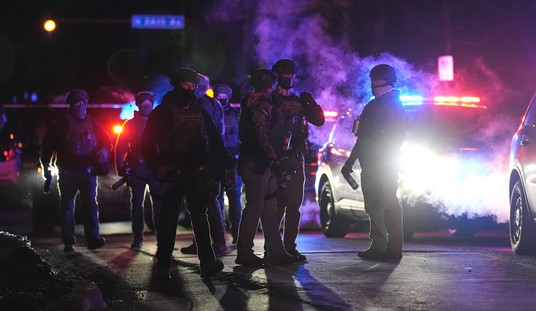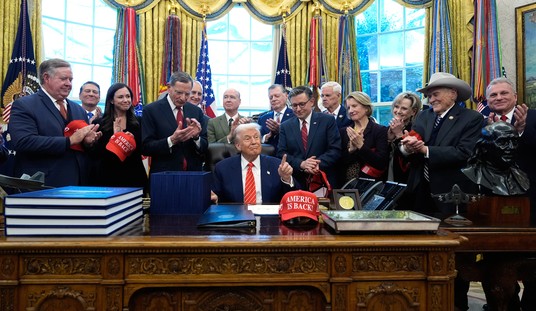On June 12, 1987, President Ronald Reagan was scheduled to give a speech at the Brandenburg Gate, at the border of East and West Berlin. It was a time of political ferment. Gorbachev’s “glasnost” and “perestroika” were the beloved idols of the Western left but, behind the scenes, the KGB and GRU continued their bad old ways of generating dissension and defeatism in NATO. Reagan, already cast in the role of a Cold Warrior who was out of step with the times, was counseled to go easy. The Germans, he was told, had already heard the anti-communist stuff until they were sick of it and it was perceived that Gorbachev might be politically weakened if Reagan went after him too hard.
Speechwriter Peter Robinson was assigned to produce a draft. He was told only that the president would speak at the Berlin Wall, there would be a large crowd, and he “probably ought to talk about foreign policy.” Not content to sift through State Department white papers and country briefings, Robinson left for Berlin.
In his book, How Ronald Reagan Changed My Life, Robinson recalls that the ranking diplomat mainly advised him on what not to say—particularly warning him against bashing the Soviets, or mentioning the Wall. Germans had gotten used to it, he said, and any statement about the Wall would be in bad taste. The diplomat instead broached several pedestrian ideas such as increasing air routes to Berlin and turning Berlin into a conference center.
That night, Robinson says, he accepted a dinner invitation among ordinary Germans. When he asked if fellow guests had “gotten used to” the Wall, one said he would never get used to it because he hadn’t seen his sister, who lived on the other side of the wall, for twenty years. His hostess erupted that if Gorbachev was serious about peace he would “tear down this wall.” When Robinson returned to Washington, and after many revisions, he put the phrase in the speech.
This internal debate was fierce with the State Department and National Security Council of Colin Powell adamant that the offending phrase had to come out of the speech.
Higher-ups from the State Department, members of the National Security Council, and the diplomat in Berlin that Robinson had consulted all fired off objections and sent alternate drafts, all of them missing the challenge to tear down the wall. At one point, Robinson had to defend his version of the speech, in person, from then-deputy national security adviser Colin Powell.
“After listening to Powell recite all the arguments against the speech in his accustomed forceful manner, however, I heard myself reciting all the arguments in favor of the speech in an equally forceful manner,” Robinson writes. “I could scarcely believe my own tone of voice. Powell looked a little taken aback himself.”
The objections continued, and the secretary of state made his displeasure known to the White House through both the chief of staff and his deputy just days before Reagan left for Europe. Up until the morning of the speech, people from all over the executive branch continued to plead for the line to be removed, but the president was set on it.
As a compromise, the bureaucracy wanted, “This ugly wall will disappear.”
The issue wasn’t settled by the morning of the speech, it was still bureaucracy vs. Reagan and his speechwriters. Then Reagan made the call:
“We were in the limousine on the way to the Brandenburg Gate and he was reviewing the speech text one last time,” deputy chief of staff Kenneth Duberstein recalled. “When he got to the section of the speech that was disputed by the State Department, he looked and me said, ‘It’s gonna drive the State Department boys crazy, but I’m gonna leave it in.'”













Join the conversation as a VIP Member